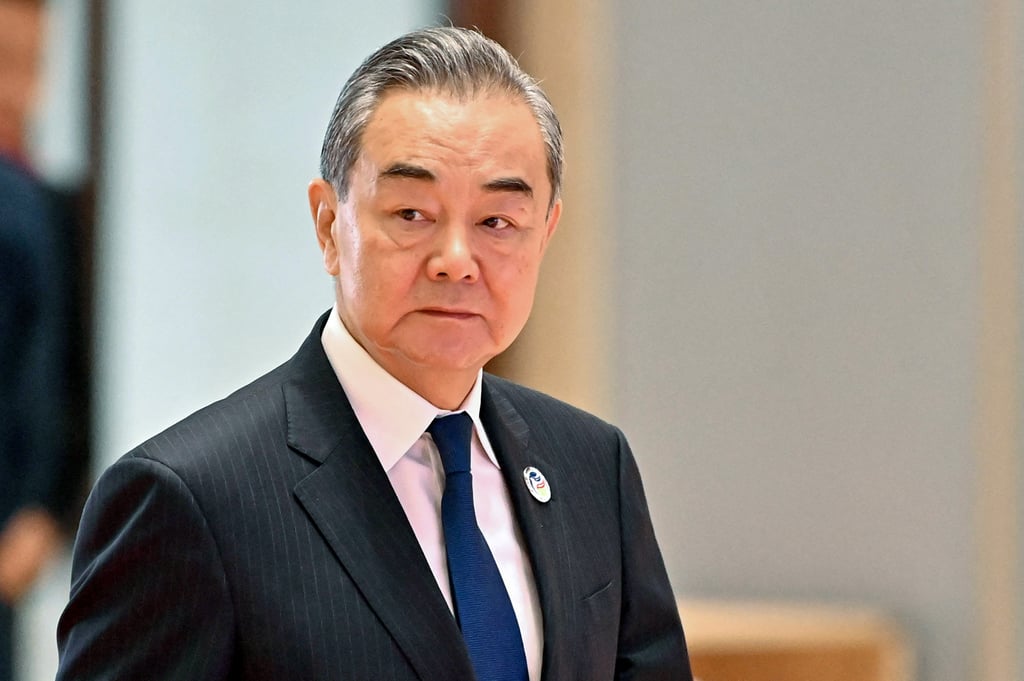US National Security Adviser Jake Sullivan will travel next week to Beijing to meet Chinese Foreign Minister Wang Yi, marking the first trip to China by a national security adviser during President Joe Biden’s administration.
The visit from Tuesday to Thursday will be the fifth time the two high-ranking officials will have met, following their last meeting in January in Bangkok, Thailand, a senior US administration official told reporters on Friday.
The two are expected to discuss key issues in the Sino-American relationship, including advancing counternarcotics cooperation, military-to-military communication as well as AI safety and risk, she said.
Even as both sides have emphasised a need for communication, the US continued to impose trade restrictions on Chinese firms, adding more than 40 mainland entities to its export control list on Friday over Beijing’s alleged support of Russia’s military.

Sullivan would broach US concerns about Beijing’s support for its ally’s defence industrial base and its activities in the South China Sea, she added, speaking on background.
The official noted the envoy would also exchange views on global issues including North Korea, Middle East, Myanmar and cross-strait issues, referring to Taiwan.
The talks are further expected to address a possible meeting between Biden and Chinese President Xi Jinping later this year.
While the US valued communication, the American diplomatic efforts and channels it pursued “do not indicate a change in approach” to China, the official said.
“This is an intensely competitive relationship,” she added. “We are committed to making the investment strengthening our alliances and taking the common-sense steps on tech and national security that we need to take.”
“We are committed to managing this competition responsibly … and prevent it from veering into conflict.”
The coming visit underscores the complex nature of the bilateral relationship, balancing diplomatic engagement with competitive tensions.
As Washington seeks to advance high-level dialogue, its tech race with China has intensified. Since Biden took office in 2021, more than 120 Chinese companies have been added to US government blacklists.
The pattern continued on Friday with 400 entities added to the US export control list, including 42 Chinese firms, amid persistent American concerns over technology, national security and Beijing’s alleged aid to Russian war efforts in Ukraine.
The US State Department said the latest restrictions were meant to disrupt Moscow’s “sanctions evasion and target entities in multiple third countries” as Washington remained “concerned by the magnitude of dual-use goods exports” from China to Russia.
Imports from China “are filling critical gaps in Russia’s defence-production cycle, thereby enabling it to produce weapons, ramp up defence production and bolster its military-industrial base”, it added.
The US presidential election is also expected to loom over the talks in Beijing. When asked about the possibility of Sullivan and Wang discussing the race that culminates in November, the US official said it would not be a focal point.
“That will be up to the next administration to determine China policy and how they intend to use some of these channels of communication,” she said.
“What we can speak to is how we intend to manage the balance of this administration and how we intend to manage the transition.”
The senior official said the Biden administration’s China policy “is not about changing China at its core” but “about positioning the United States to make the investment, build the alliances we need to succeed and grow stronger”.
In a related move, the State Department on Friday said US Deputy Secretary of State Kurt Campbell would travel next week to Tonga, Vanuatu and New Zealand.
The Biden administration has made enhanced aid, coastguard support and diplomacy in the Indo-Pacific a cornerstone of its bid to stem China’s expanding regional footprint.

“These engagements … represent the latest in a series of high-level visits to the region by senior US officials” and have “deepened US engagement with the Pacific Islands”, the State Department said in a statement.
Campbell next week will lead an American delegation to the Pacific Islands Forum leaders’ meeting in Tonga, where he plans to meet Pacific leaders and promote the “goals and achievements of the US-Pacific partnership strategy”, the department said.
The long-time diplomat will then travel to Vanuatu to dedicate a new embassy in Port Vila, the island nation’s capital, making it America’s newest overseas mission.
China in 2018 surpassed the US as the country with the most foreign embassies and consulates, according to the Global Diplomacy Index. In 2023, before the Port Vila addition, Beijing had 274 missions compared to Washington’s 271.
Campbell will wrap up his trip on August 30 in Auckland, where he will co-chair the US-New Zealand strategic dialogue, the State Department said, and launch a “high-level” discussion of technology.
America’s latest diplomatic activity across Asia suggested the Biden administration seeks to cement its legacy before the US leader vacates the White House in January, said Yun Sun of the Stimson Centre, a Washington-based think tank.
Accordingly, Sun believed it was important for Sullivan to visit Beijing at least once while Biden was still in office. Biden in July opted to exit the presidential race and endorsed Vice-President Kamala Harris to succeed him.
“Given Sullivan’s focus on the Russia issue, there is an expectation that he will focus on the Ukraine situation,” she said of his trip.
“The goal may be more granular than a grand objective to end the war. But I think they want to see what Beijing is willing to offer. There may not be such a chance by next January if China just lets the opportunity slide by.”
Additional reporting by Mark Magnier in New York and Khushboo Razdan in Washington


